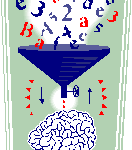
Beyond content knowledge: learning outcomes and affective skills
In one of my previous post’s I provided some details about a range of particularly interesting learning outcomes (LOs) related papers that I’d come across during the course of my systematic review of the LOs literature. In this post I would like to highlight a few more that readers interested in this topic might like to explore. In particular, I would like to focus […]

Uncapitalised ‘learning outcomes’: the tutor and student’s friend
It’s always a nice moment when you come across an article, conference paper, blog post, etc in which the author(s) expresses similar views on a topic to the ones that you’ve been stating for some time, particularly if those views are possibly not the most popular or common ones. It’s a nice moment because you feel a sense […]

Seven useful learning outcomes papers
Over the last few months I have been doing some rigorous searching and reviewing of the published, peer-reviewed literature concerning learning outcomes. We currently have a paper in review as a result of this work and I hope to provide further details about that particular piece at some point soon. For this post, I want […]

Arguing against learning outcomes as a behaviourist learning approach
I have very recently discovered the wonder that is Scoop-it. This e-tool should supposedly save me the job of searching online to find any latest news/posts/pieces about learning outcomes in higher education (click here to check out my ‘Learning Outcomes’ scoop-it). So far it is doing a grand job and it was through my Scoop-it’s daily […]

Countering arguments against learning outcomes with scrutiny and evidence
The issue of ‘learning outcomes’ often leads to heated debates about their desirability for and applicability to university level learning. I came across this letter by a Professor at Simon Fraser University written to SFU students in which he argues, quite vociferously, against learning outcomes. Some key extracts are: Students will have less of a voice […]

Ambiguity and complexity for students in HE: how learning outcomes can help
A few weeks ago I discussed comments Graham Gibbs had made on a SEDA blog post about learning outcomes. His post was part of his ’53 powerful ideas all teachers should know about’, which I would certainly encourage all educators to engage with. The other day I came across his 7th idea on the SEDA […]

Learning outcomes taken to the extreme: what not to hope for in HE
I came across this blog piece the other day: ‘Objectives versus outcomes’. I want to comment on it here because I think it reinforces, unintentionally, some of the concerns and worries that some scholars have concerning learning outcomes. I should state right off that the blog piece is not connected with an educational institution. Instead, it has […]

Taken-for-granted metaphors in HE and the messages they convey
In my work on the ‘Learning Outcomes Project’, I’ve been reviewing a lot of the learning outcomes literature. Over the coming weeks I will try to review some of the papers I’ve found that have either been very interesting or have made me stop and think further about certain issues. For this post I want […]

Unwarranted research claims in educational research: reflections for ‘learning outcomes’
Some time ago I came across a paper from Stephen Gorard called ‘Warranting research claims from non-experimental evidence’. This paper makes some important points about warrants for research conclusions in educational research. Gorard states: many of the high-profile criticisms of educational research are not, on reflection, about the nature of the evidence produced but about […]

Arguing against learning outcomes: limited evidence and moving forward
As part of the ‘Learning Outcomes Project’, I’m always very eager to see the different contexts in which other academics/scholars write about learning outcomes (LOs). Last week I came across a piece from Graham Gibbs on the SEDA blog in which he discusses the importance of conveying clear and high expectations to students. The key […]

Recent Comments